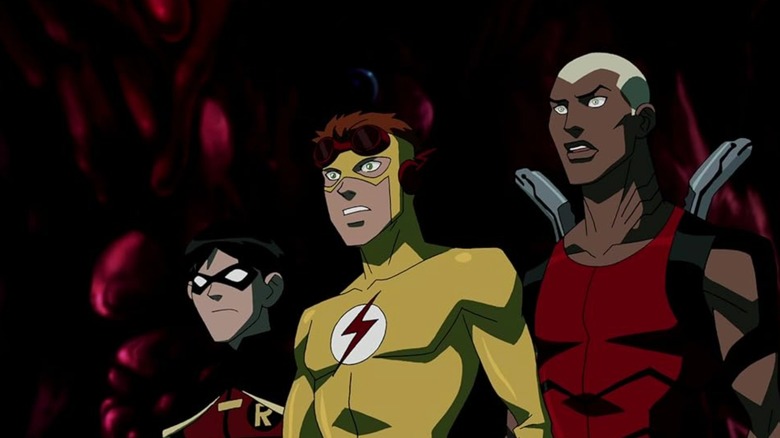
The Future of "Young Justice" and Its Unique Place in the DC Universe
The animated series "Young Justice" has not been officially canceled, but it also hasn’t received a fifth season pickup. This leaves fans wondering about its future. However, there are still ways to engage with the world of "Young Justice," including its tie-in comics. From 2011 to 2013, the show's creator, Greg Weisman, co-wrote a 26-issue comic series that expanded on the show’s universe. In 2023, a six-issue miniseries titled "Young Justice: Targets" was released. While these comics aren't essential to the main series, they are considered canon. For example, issues #11-13 provide the origin story of Clayface, which later appears in episode 8, "Downtime."
A New Perspective from the Creators
In the second trade paperback collection, "Training Day," Weisman shared some revealing insights into the development of the show. He and co-creator Brandon Vietti were initially hesitant when tasked with creating another DC superhero team show. They were concerned about competing with established series like "Justice League Unlimited" and "Teen Titans." These shows had already set high expectations for DC animated content.
"We were more than a little intimidated by the fact that — with 'Justice League Unlimited' and 'Teen Titans' fresh in the minds of fans — another DC superhero-team show would be a hard sell to an audience who had already seen that kind of thing before, recently and successfully."
Both "Justice League Unlimited" and "Teen Titans" ended their runs on Cartoon Network in 2006. "JLU" was part of the beloved DC Animated Universe, which began with "Batman: The Animated Series" in 1992. "Teen Titans" became a cultural touchstone, and its influence continues today through "Teen Titans Go!"
Differentiating "Young Justice" from Previous Shows
Weisman and Vietti wanted to create something unique. Their solution was to approach "Young Justice" as a spy series first, a teen drama second, and a superhero show third. This perspective helped set the show apart from previous DC animated series.
"Brandon suggested making the new show about the Justice League's covert ops team: 'Make it a spy series first. A teen drama second. A superhero show third.' Suddenly, it felt like we had a fresh approach."
This approach led to a distinct tone and style. Unlike "Teen Titans," which had an anime-inspired art style and comedic elements, "Young Justice" focused on espionage and covert operations. The Team, composed of sidekicks like Robin, Aqualad, and Kid Flash, was assigned secret missions that required discretion.
Espionage and Teen Drama in "Young Justice"
The show's early episodes featured espionage-centered plots. In "Dropzone," the Team infiltrates Santa Prisca, ruled by Bane. In "Infiltrator," they guard a scientist targeted by the League of Shadows. "Terrors" sees Miss Martian and Superboy go undercover in Belle Reve prison. Season 1 also features a subplot about a secret mole on the Team, adding a spy thriller element to the series.
Season 2 builds on this with Aqualad being undercover in the criminal organization run by his father, Black Manta. The central antagonist, The Light, is a conspiracy of power players, reminiscent of spy stories. Season 3 introduces a shadowy group of heroes, including Batman, to counter The Light, further deepening the espionage theme.
Secrets and Lies: The Core Theme of "Young Justice"
Weisman emphasized that the major theme of "Young Justice" (after "growing up") is "secrets and lies." Throughout the first season, characters hide personal truths from each other. Miss Martian, for instance, is a White Martian, a minority on Mars, and fears rejection. Superboy is a genetic mix of Superman and Lex Luthor. Artemis comes from a super-villain family. In the penultimate episode, "Usual Suspects," the Team finally reveals their secrets, countering the Light's manipulation.
Some fans argue that after season 1, "Young Justice" moved away from its original spy-themed pitch. However, Weisman always envisioned the show as an adaptation of the entire DC universe through the eyes of young heroes. As DC Studios Co-Presidents James Gunn and Peter Safran focus on their cinematic DC Universe, fans hope Weisman and Vietti find a way to return to the world of "Young Justice."

Post a Comment